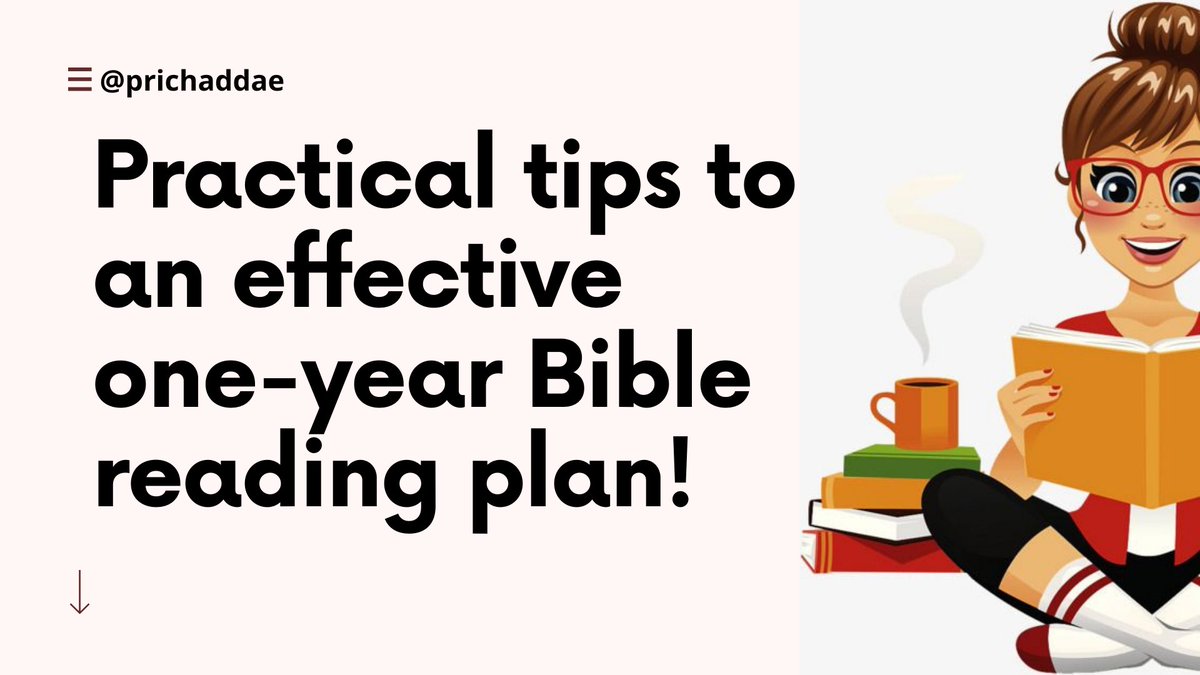These are very easy-to-follow tips that can transform your Bible reading plan from not so interesting to fun and impactful.
In this thread, you'll learn;
1. Best time to do your reading plan
2. How to monitor your progress or consistency, etc.
1. READ IN A QUIET PLACE!
Find a quiet and distraction free location for your reading. It’s nice to have a comfy spot that is well lit.
You need to be comfortable when reading, else your attention will easily drift to the discomfort. You don't need to sweat whiles reading too.
2. DIVIDE YOUR READING SCHEDULE!
Try to schedule your reading at the same time everyday. Another effective strategy is to break it into 2 parts in the day; morning and night.
For instance,
A. Morning reading - New Testament
B. Night reading - Old Testament
3. GET AN ACCOUNTABILITY PARTNER!
Enlist the help of a friend or digital reminder. A partner will keep you accountable by reminding you to read.
A friend is more appropriate because they allow you to discuss what you are reading. It's a fun way to share your insights.
4. PLAN TO CATCH UP!
Don’t get discouraged if you get behind. Start each week on schedule and caught up. You can also use the weekends to complete missed dates during the week.
There are days you may miss because of your schedule for the day, be diligent to catch up later.
5. MEDITATE, PRAY & WRITE!
Allow additional time after each reading for reflection, prayers and journaling. This is where the relationship and knowledge grows!
Remember, this is a reading plan and not a study plan. But when you meditate and write, you're setting yourself up...
...for a study plan. It forms the basis for your study plan. So the journaling is very important.
Also, pray before and after reading. It helps to open and consecrate, respectively, what you read in your Spirit.
6. CHOOSE ONE BIBLE VERSION!
You can decide which version of the Bible you like best. Easier to understand versions are the NIV and NLT.
For the reading plan, it's advisable to use a single version but for the studying, you'll need more versions.
Psalms 119:105 says, "Thy word is a lamp unto my feet, and a light unto my path"
Let the word be your companion this year and see how your walk with the Lord will be so much better and exciting.
I promise, you'll be more excited about the word like never before.
God bless you!

